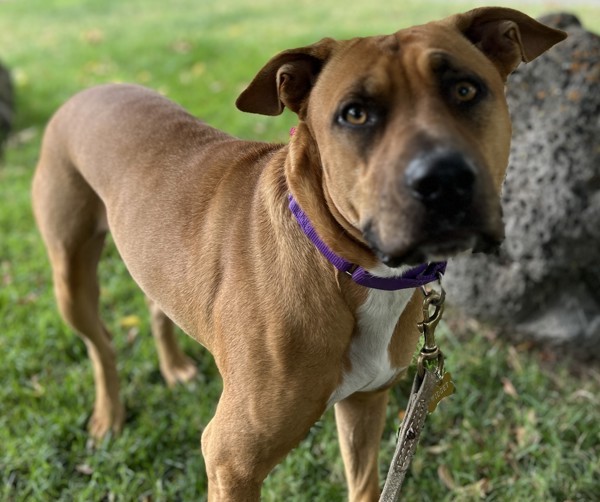Even the nicest animal shelter isn’t the ideal place for a pet. With its new sounds and smells, other animals and human strangers, it can be a bit scary and unsettling. It can be especially hard for our newly arrived furry and feathered friends because they don’t understand how they ended up in this strange place. That’s why the staff and volunteers at Marin Humane work so hard to try to make these guests as comfortable and happy as possible while they’re in our care.
Related Articles
Is that a great horned owl making un-owl like sounds in San Jose?
Rescued near death by Bay Area cyclist, kitten warms hearts over hundreds of miles, lands new home
Why did the coyote snarl at worker who meant no harm?
Saying goodbye to a pet is never easy
Castro Valley toy poodle has strange ritual with his favorite treat
So what exactly is a day in the life of a shelter animal like? The answer depends on a few things and can change during the course of their stay. When Marshmallow, a 10-year-old kitty, was surrendered to Marin Humane by her guardian, she was extremely shy and shut down. In instances like that, we give the animal time to relax in a quieter part of the shelter.
“In general, dogs tend to acclimate to shelter life faster than cats,” said Keri Fennell, Marin Humane’s vice president of shelter operations. “But all animals are different, so when it’s clear they need a bit more time to feel safe and secure, we try to give them that.”
Once Marshmallow began to feel at ease and became more trusting, she was able to be evaluated medically and behaviorally and was soon adopted.
It’s important all animals receive as much socialization, exercise and, of course, love as possible. This keeps them engaged and healthy and reduces “kennel stress,” such as anxious behavior, lack of appetite and depression.
Our dedicated animal care and behavior and training teams and their amazing volunteers take dogs out for daily walks and provide lots of socialization. Sometimes they’ll simply sit with the dog, providing belly rubs and love.
Our feline guests also receive visits from staff and volunteers who use toys to get them moving and provide lots of scratches under the chin along with some quality lap time. Our dedicated rabbit volunteers organize a weekly “Rabbit Romper Room” where these enchanting animals can explore a new environment and get more room to run and play. Small pets like guinea pigs, reptiles and birds also get special attention during their time at the shelter.
If an animal is quite reactive or unpredictable, we have a special team of handlers who can ensure both animals and humans stay safe during their interactions.
The shelter has a large room dedicated to enrichment for dogs. These dogs get to pick out toys, work a treat puzzle or flop down on a couch with volunteers. The shelter also welcomes some shelter dogs to training classes, which keep manners up to date, teach new skills and provide another break from the kennels.
Cats having a particularly rough time get special attention from our feline intervention team. This group of well-trained volunteers are keen observers of cat behavior and use their skills, time, patience and sometimes creativity to help cats relax and become more social.
When efforts to calm a stressed animal don’t seem to be working, we rely on our amazing foster families. Being in a home not only reduces stress but also allows a pet’s true personality to shine through. We learn a lot about them from our foster families, and that helps us make better matches with potential adopters. The tricky part is we just don’t have enough foster homes available, especially ones for large dogs. If you’ve ever considered fostering, now is a great time. You can learn more at marinhumane.org/foster.
No one likes to think of an innocent animal in a shelter and not a home, but our dedicated team is committed to helping make their time with us as stress-free and loving as possible.
Lisa Bloch is the marketing and communications director for Marin Humane, which contributes Tails of Marin and welcomes questions and comments from the community. Visit marinhumane.org, find us on social media @marinhumane, or email [email protected].





